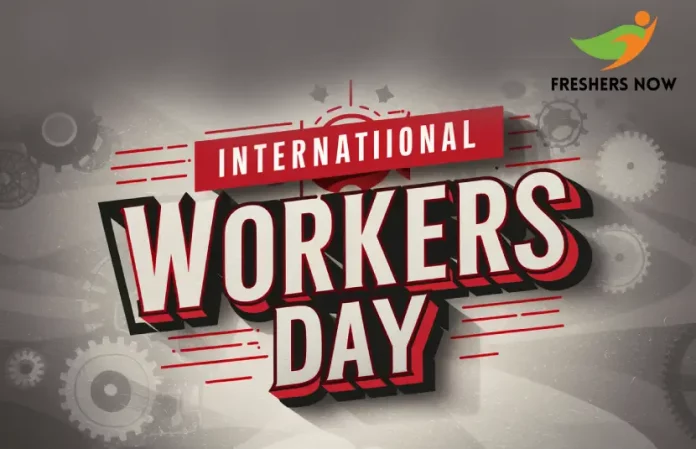
May Day 2024 also called International Workers Day or Labour Day, is a global celebration honoring the contributions of workers worldwide. Observed on May 1st each year, this day commemorates the historic struggles and achievements of the labor movement. From its origins in the late 19th century to its contemporary significance, May Day holds immense importance in advocating for workers’ rights, fair wages, and improved working conditions.
May Day in India
In India, May Day 2024 holds particular significance as it commemorates the contributions of millions of workers across diverse sectors, including agriculture, manufacturing, construction, and services. It serves as a platform for workers to voice their concerns and demand better working conditions, fair wages, and social security measures.
Historical Background
The origins of May Day can be traced back to the late 19th century when labor movements emerged across the industrialized world. In 1886, workers in Chicago, USA, led a mass protest demanding an eight-hour workday. The protests culminated in a tragic event known as the Haymarket affair, where several workers were killed by the police. Despite the violence, the movement sparked global solidarity among workers, leading to the establishment of May 1st as International Workers’ Day.
Global Significance
Today, May Day is celebrated in various countries around the world, including India, where it serves as a reminder of the ongoing struggles for workers’ rights and social justice. It provides an opportunity to reflect on the achievements of the labor movement and to renew the commitment to uphold the dignity and rights of all workers.
Celebrations and Activities
On May Day, various events and activities are organized across India to celebrate the spirit of solidarity and unity among workers. These include rallies, marches, seminars, and cultural programs highlighting the achievements and challenges faced by the labor force. Trade unions, workers’ organizations, and civil society groups actively participate in these events to advocate for workers’ rights and social justice.
Challenges Faced by Workers
Despite significant progress in labor laws and regulations, workers in India continue to face numerous challenges, including low wages, unsafe working conditions, lack of job security, and exploitation. Informal workers, including those in the informal sector and marginalized communities, are particularly vulnerable to exploitation and discrimination.
The Role of Trade Unions
Trade unions play a crucial role in advocating for the rights and interests of workers in India. They negotiate with employers, participate in policy-making processes, and organize collective actions to address issues affecting workers. Through collective bargaining and advocacy, trade unions strive to improve wages, working conditions, and social protections for all workers.
Government Initiatives
The Indian government has implemented various initiatives and policies aimed at addressing the challenges faced by workers and promoting their welfare. These include the Mahatma Gandhi National Rural Employment Guarantee Act (MGNREGA), which guarantees a minimum of 100 days of wage employment to every rural household, and the Pradhan Mantri Rojgar Protsahan Yojana (PMRPY), which incentivizes employers to create new employment opportunities.
Future Outlook
As India continues to undergo rapid economic growth and social transformation, the role of workers in driving development and progress becomes increasingly significant. It is essential to prioritize the interests and well-being of workers, ensure their rights are protected, and create an enabling environment for decent and dignified work for all.
May Day is not just a day of celebration but also a reminder of the ongoing struggles for workers’ rights and social justice. As we commemorate this day, let us reaffirm our commitment to upholding the dignity and rights of all workers and strive towards a more inclusive and equitable society.
Keep following Freshersnow.com for more Current Affairs topics.
| You can Also Check |
| Current Affairs |



